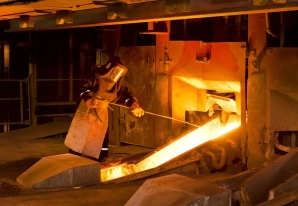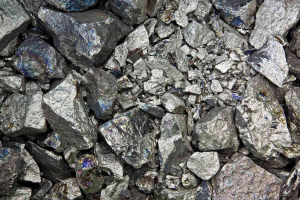SGAR project boosts growth, creates jobs, expands alumina production
The Smelter Grade Alumina Refinery (SGAR) project, operated by PT Borneo Alumina Indonesia (BAI) as a joint venture between PT Indonesia Asahan Aluminium (Inalum) and PT Aneka Tambang (Antam), is projected to give economic benefits for Mempawah region, West Kalimantan.
The project with a total investment of US$900 million (Rp14.5 trillion) will be carried in phases. The first phase is targeted to produce a million tons worth of alumina per year starting 2025.
The project will also have positive impact on employment in the region as the opening of SGAR will attract job openings to the surrounding community.
"The presence of PT Borneo Alumina will open up employment opportunities, drive the wheels of the economy starting from increasing needs or fulfillment from the community as suppliers of goods, materials as well as labor. It will also drive economic growth," Leonard M. Manurung, President Director at PT BAI, said as quoted by CNBC Indonesia, in October 2024.
He added that the factory operated by its company will bring a large contribution to economic growth in West Kalimantan. Additionally, it will boost the Gross Regional Domestic Product (GRDP) in the mining sector to 15.38 percent, which could potentially increase the economic value in the region.
"If we look at the portion, actually this processing industry has huge contribution to West Kalimantan, with the existence of PT Borneo Alumina Indonesia, and later with full production, this will make huge contribution to economic growth of West Kalimantan," he said.
The local community will also be prioritized to be employed in SGAR. The company is also trying to develop the community's capacity around the smelter to be able to work in SGAR.
"If we have local people who have experience, of course through our CSR program, we will try to empower these local people," he adds.
Phase 2
After the completion of phase 1, PT BAI will continue its effort in developing SGAR to phase 2 which will also have a production capacity target of alumina worth a million tons per year with a target of operation by 2028.
With both completion of phases 1 and 2, it is believed that domestic alumina production will increase drastically to 2 million tons a year, and an absorption of bauxite rare minerals reaching 6 million tons per year.
This is in line with Inalum's corporation action in increasing the production capacity of its aluminum reaching 900,000 tons per year.
Currently, Inalum aluminum smelters have the production capacity reaching 275,000 tons per year, all of which are prioritized for domestic demands. Inalum's aluminum production now stands at 44 percent in meeting domestic demands, while the other 56 percent through import in 2023. Current national demands reach 1.2 million tons per year.
Tag
Already have an account? Sign In
-
Start reading
Freemium
-
Monthly Subscription
30% OFF$26.03
$37.19/MonthCancel anytime
This offer is open to all new subscribers!
Subscribe now -
Yearly Subscription
33% OFF$228.13
$340.5/YearCancel anytime
This offer is open to all new subscribers!
Subscribe now






